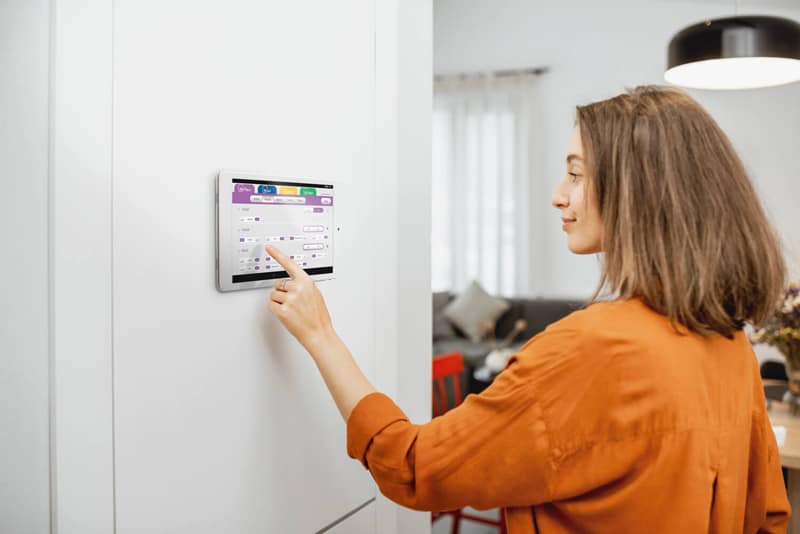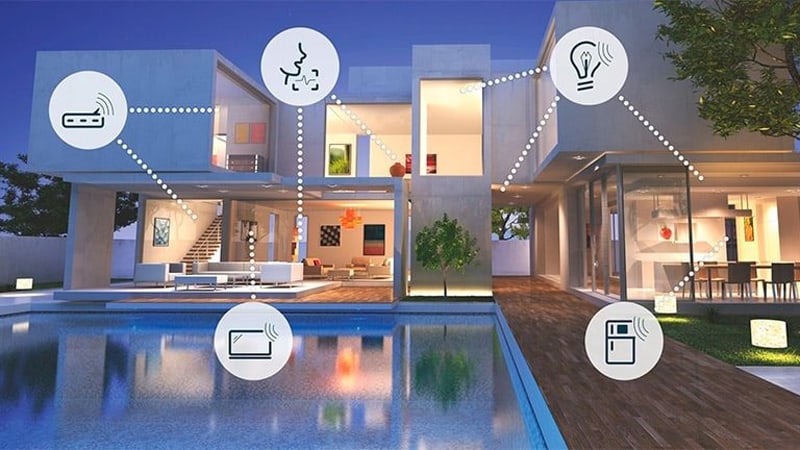A smart home sounds like something from the future. Having voice-controlled devices and robots is something we used to see in movies, yet it’s now here for anyone to experience. While a smart home brings plenty of benefits and generally makes living easier, it isn’t for everyone. This article will discuss what you need to consider before setting up a smart home.

Main points to consider
Cost
Smart devices aren’t cheap, so if you want to automate many different things in your home, it will cost a small fortune. The U.S. national average cost for Smart Home appliances is $5.500. While you can get fewer appliances for cheaper, it’s still a considerable investment.
This is where you have to think about your priorities and look for solutions in those areas instead of automating everything at once.
How “Smart” Are You Willing to Go?
In today’s world of innovation and a wide selection of products, many options are generally considered “smart.” Yet, not all are the same. Before going “smart,” you have to ask yourself: “How do I want to make my life easier with these devices”?
The main goal of smart living is to make everyday, mundane tasks easier. You can purchase a smart robot cleaner that will care for your floor and carpets. You can level up by having many devices that cross-communicate and help you automate most of your regular activities.
Yet, having too many devices around the house comes with some security issues, which we’ll get into later.
Surfshark vpn vs nordvpn
Surfshark VPN and NordVPN are excellent VPN providers with their own unique strengths. It ultimately comes down to personal preferences and specific needs. If you need a larger server network, NordVPN might be the better choice, while if you’re looking for a cheaper option with unlimited connections, Surfshark VPN might be a better fit.
Ease of Use
To make your smart home experience smoother, it’s best to set it up in one ecosystem of devices. Companies like Amazon, Google, Apple, and others have developed a wide range of products that communicate with each other, making it easier for the owners to manage.
Having devices that communicate will allow you to build routines and make it much easier to control your home.
On the other hand, if you only decide to use basic smart devices like locks or washers, you can select them based on your preference instead of whether they fit into a particular “ecosystem.”
Some Concerns You Need to Keep in Mind
Security
There are so many videos floating around the internet of people whose smart devices were hacked, leaving them visible and vulnerable to whoever’s watching or listening to them. Many of these security flaws come from smart security systems.
Most smart devices need an internet connection to function. Any vulnerability in your connection can translate to the device and allow hackers to gain remote access. Since these devices have speakers, microphones, and cameras, there’s no shortage of damage that hackers can do with them.

Some of the main security concerns with smart devices are:
● Location tracking
● Spying and monitoring
● Identity theftMaking Your Smart Home Secure
The one thing that connects all your devices is the router. Setting up the router correctly is the most impactful way to prevent attacks.
1. Change the default router name and password
2. Set a strong, unique password with plenty of numbers and special characters
3. Use the highest level of router encryption (WPA3 on new routers)
Encryption shouldn’t end with your router. You should also encrypt all data by backing it up in a secure cloud and use a VPN to hide your IP and location when using your devices.
Another helpful tip is to disable features you don’t need. For example, many smart devices allow remote access. If you only use these devices at home, there’s no need to enable this feature as it brings security vulnerabilities.
Don’t forget to update your devices and WiFi router. Regularly check for firmware updates and install them as soon as possible. These updates address security vulnerabilities and add functionality.

Data Collection by Major Corporations
Hackers aren’t the only ones exploiting smart homes. The very makers of smart devices have come under criticism for using their power to gather behavioral data from users, often without asking for permission.
Not all people will be bothered by companies like Amazon or Google collecting data. However, people who care a lot about data privacy may want to be careful.
Smart devices have microphones, cameras, speakers – everything one needs to collect valuable data about a person. Corporations can learn daily routines, how you talk, what you often speak about, and more.
When collected from millions of users, this data has tremendous value. It can be used to develop new products or offerings or sold to others for a hefty profit.
Final Thoughts
Smart homes are no longer a thing of the future. People can now automate most mundane activities around the house, transforming how we live forever. Yet, major security and data privacy concerns have been associated with them.
The smart home revolution is still in its early stages, so it will be interesting to see how it evolves in the coming years.

